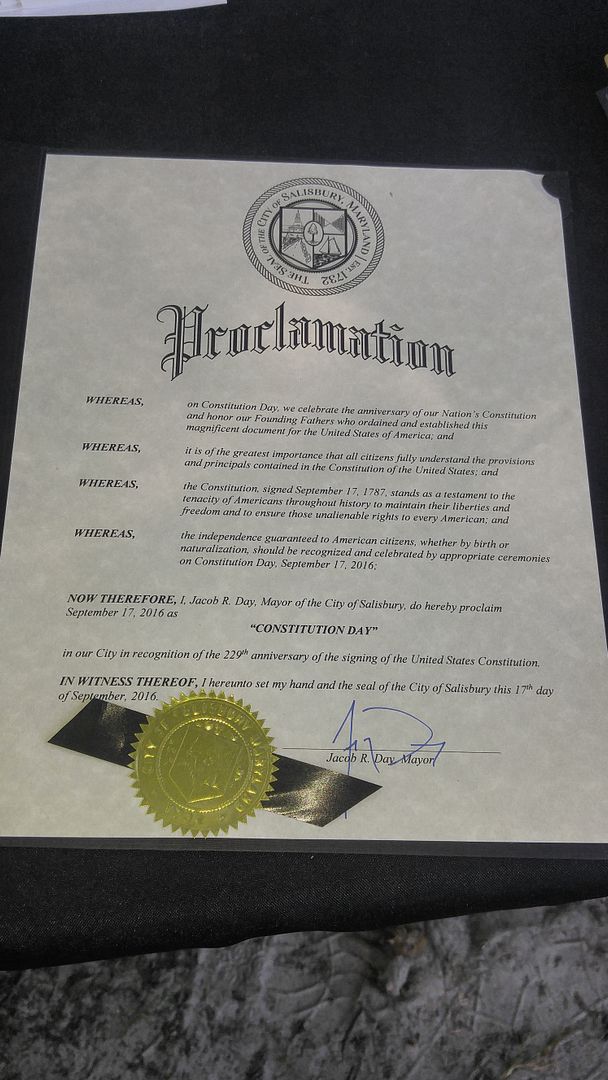I have a blog category I call “don’t let good writing go to waste.” It’s used for the occasional lengthy comments that I put up on social media that are too good to bury there. I hadn’t transferred one to this site in awhile, but I thought I needed to in this instance because it was in response to my wife sharing a piece I wrote for The Patriot Post and her social media audience isn’t that congruent with mine. So here you are, as I discuss the current political scene and the Second Amendment. I’m not going to blockquote myself in this instance.
The response that drew mine stated:
“Keep the hate going…the far right and far left are only pleasing the enemies of this country.”
First of all, how is pointing out legitimate concerns about our God-given Constitutional rights meeting the definition of “keep the hate going?”
Secondly, I don’t consider myself “far right” although I do claim to be barely left of militia. As I see it, political philosophy is not linear, but more like a circle because the far left – which I define as a single entity controlling all aspects of life, such as a dictator or tyrant, constitutes the end destination of socialism, which works its way leftward through communism to that extreme.
On the other side, through the Randian scale of libertarianism which is the greater and greater anarchy of every man exerting his rights for himself, you come to a point where the strongest survives because he can best exert his rights at the expense of someone who is weaker. At that point, the strongest person is the dictator or tyrant – thus, the same point on the circle.
Somewhere on the other side of the diameter is the optimum point where people have rights, but the minority is respected. Close by that point was the Constitutional republic we founded, and our position on the circle has shifted over the years as we eventually eliminated the slavery present when we began and gave all adult citizens the right to vote, but we also ceded an oversupply of power to a central government.
What protects us in that regard, however, is the fact we have available to us weapons which equalize situations. Would you have the strength to fight off an attacker who was young and in shape? Probably not, but your having a weapon negates their advantages. The same goes for government – in 1775 we went up against the strongest army the world had known to date and eight years later defeated them because we had the wherewithal to do so – we could indeed fire when we saw the whites of their eyes instead of being unarmed subjects like the unfortunate citizens of other nations are or were.
That’s why my piece was important.
*****
And why I don’t let good writing go to waste. My job in this blogging quest for a more perfect union is that of education, and I try not to let such an opportunity pass. It reminded me of the early days when I engaged regularly with left-leaning bloggers before we hid in our information silos.
But wait, there’s more! The commenter wrote back:
God wrote the constitution? I missed that. I also lack your devotion to guns and would rather live by the rule of law. Glad to hear you are left of militia. However the patriot post is a conservative publication always leaning right and not always supporting truth. Therefore I repeat that extreme right and left wing publications and movements please our enemies.
So I had to douse her with information yet again:
I missed where I said that God wrote the Constitution. (I do believe it’s divinely inspired, though.) What I did say is that we have God-given Constitutional rights, which our Founding Fathers cited in the Declaration of Independence:
“We hold these truths to be self-evident, that all men are created equal, that they are endowed by their Creator with certain unalienable Rights, that among these are Life, Liberty and the pursuit of Happiness. That to secure these rights, Governments are instituted among Men, deriving their just powers from the consent of the governed, That whenever any Form of Government becomes destructive of these ends, it is the Right of the People to alter or to abolish it, and to institute new Government, laying its foundation on such principles and organizing its powers in such form, as to them shall seem most likely to effect their Safety and Happiness.”
“Endowed by their Creator,” or God-given. The Constitution was our effort to instill a more perfect union after the weakness of the original Articles of Confederation that was written as we were winning our independence from the British Crown was shown.
I’d love to live by the rule of law, too, but sometimes we need to have the means to enforce our rights. And the beauty of our society is that you can choose not to own a gun while we can choose to use our 2A rights.
Now, regarding The Patriot Post, their mission is simple: “From inception, our mission has been, and remains, to extend the endowment of Liberty to the next generation by first, advocating for individual rights and responsibilities; second, supporting the restoration of constitutional limits on government and the judiciary; and third, promoting free enterprise, national defense and traditional American values, as outlined in our Statement of Principles.” So we work as a news aggregation source, or digest. In our “humble shop” we have a mix of people who write commentary on news and issues of the day designed to extend that mission, and my task is to write a piece each week. Now if your version of “truth” is “orange man bad” then you may be a little disappointed. My version of truth is that he advanced our ball down the field much more so than he fumbled it.
Finally I would argue that the extreme left in our country is working in concert with our enemies since they are fellow travelers. Moreover, what you seem to be defining as the extreme right is, in truth, another version of the extreme left. (They are not anarchists.) As I said before, we who would like a more Constitutional republic with limited government are on the other side of the circle.
And yet, after all that she responded:
(W)ho got the word from God that guns are paramount in our salvation? A group of men decided what were God given rights. And none speculated that these rights included the right of deranged usually white male to shoot at innocent people( school children) to make a point.
Life, liberty and the pursuit of happiness for who? White men with guns? There is no clear knowledge of the backers of the patriot post. Therefore I again suggest the point is to separate rather than unite citizens.
What is your plan to usher the kingdom of God to our world? Shoot or threaten to shoot those whose opinion differs from yours? Government does for people what they can’t do for themselves:
Promotes sensibility during a pandemic
Provides healthcare for all
Protects the people from those who believe the most guns win
Where is the creativity in a gun? What do you offer the world that is life-giving and beautiful?
I had enough patience left for one last long reply:
I’m sitting here awestruck by the leaps of illogic you exhibit in your responses. So how about a different thought exercise?
First of all, let’s say I had a gun on my person, came to you, and laid it on a table. Would that gun do you harm laying there?
A gun is a tool. Oftentimes it is a very useful tool for self-protection even if it’s never fired. Knowing a law enforcement officer has a gun, would you take a step to punch him in the face? Of course not, for two reasons: one, you know you can’t outrun a bullet, but more importantly, you were taught respect for the law and for life. Unfortunately, far fewer are taught respect for the law and life these days so you get unfortunate incidents of people shooting at innocent victims (although more often than not these are perpetrated by black males – just look at the crime docket of a weekend in Chicago or Baltimore.) It’s more likely that a person not taught respect for the law or for life would be the one who shoot those whose opinion differs with theirs – just compare the peaceful protest of a million people yesterday in Washington, D.C. by Trump supporters with the actions of the BLM/antifa that evening as they harassed remaining Trump supporters.
We all have inalienable rights. It’s government’s job to protect them.
Unfortunately, the public has been misled into believing the government also establishes rights and that’s where they are wrong. For example, health care is NOT a right; however, as I think I pointed out in another thread, the federal government has a law that it cannot be withheld based on inability to pay.
Sensibility during a pandemic would be protecting the most vulnerable populations while allowing others who can better deal with the symptoms to develop the herd immunity.
“What is your plan to usher the kingdom of God to our world?” All I can do is be a missionary. It’s not my call as to when the kingdom of God is established. Way, way above my paygrade.
“Where is the creativity in a gun?”
It’s there in the innocent lives its proper use in defense of liberty retains.
“What do you offer the world that is life-giving and beautiful?”
Our part in the last, best hope for liberty on this earth. To go the other way would be to have the boot of tyranny stamp on a human face forever, to paraphrase George Orwell.
*****
There was a little more, but you get the point. I think I beautifully explained a lot of Constitutional philosophy in these words.






